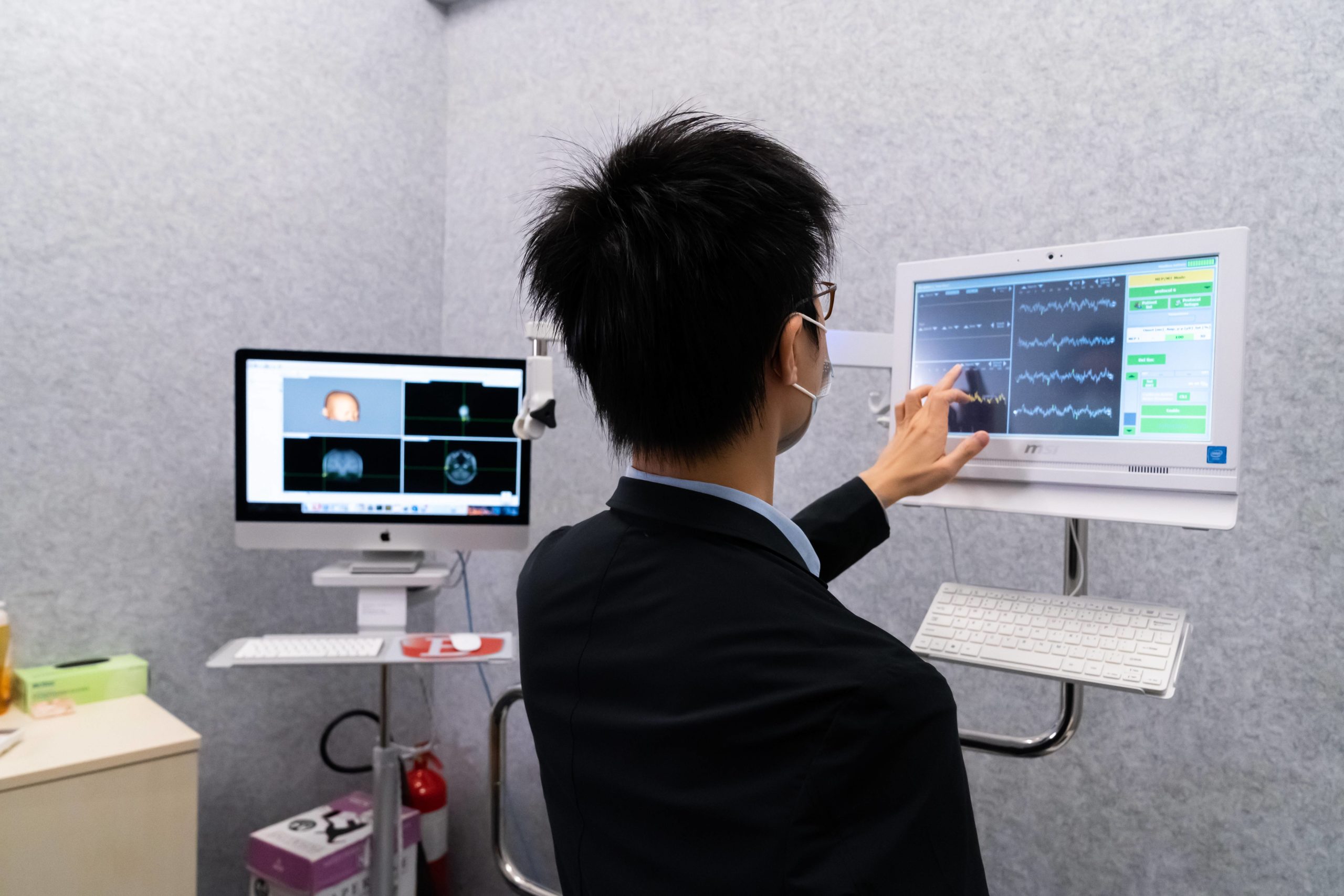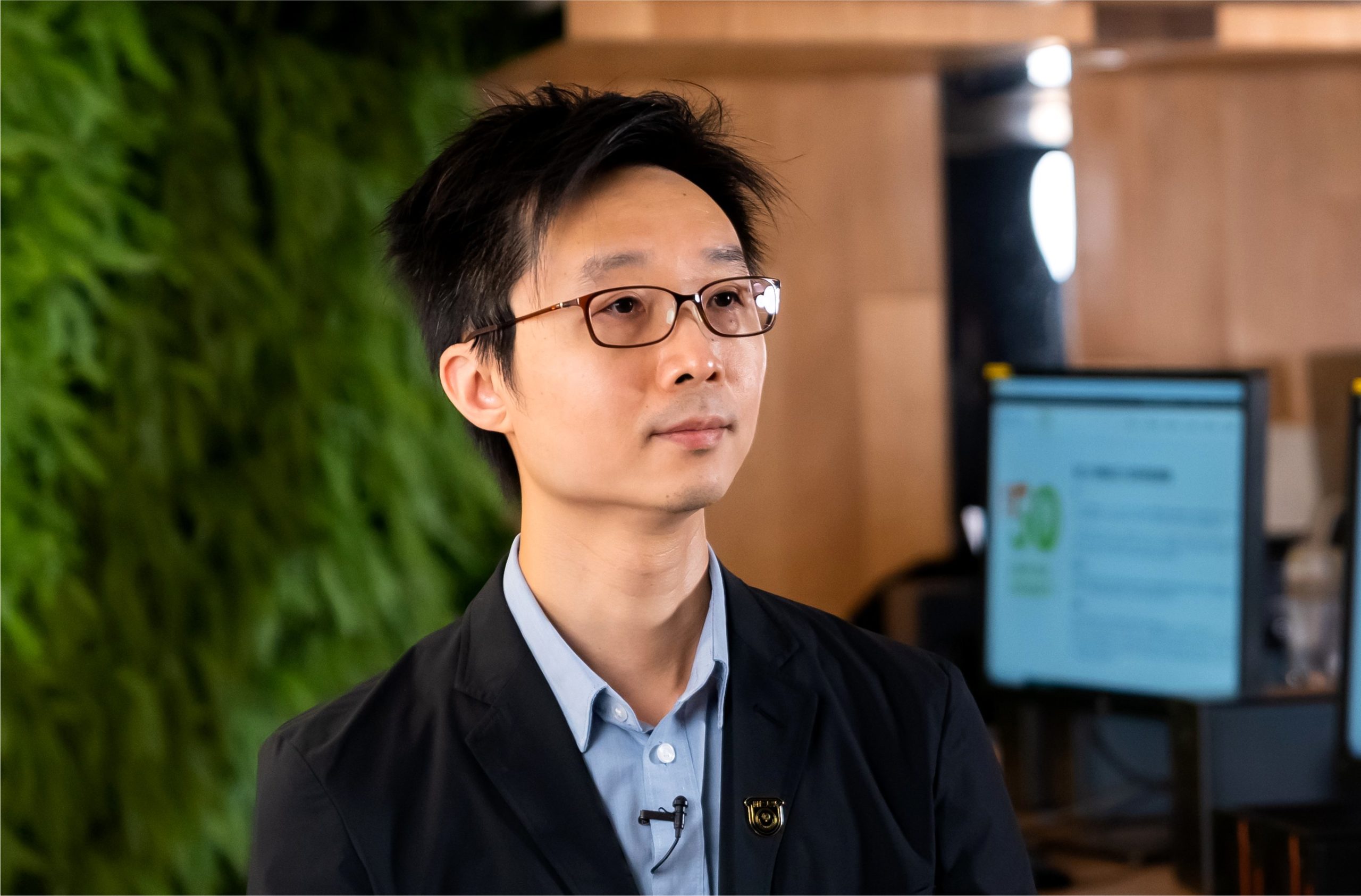Driven by the mission to reinvent liberal arts education and promote digital humanities, Hong Kong Shue Yan University has been actively incorporating cutting-edge technologies into our programmes and engaging in knowledge transfer. Dr. Alex LI, our new Associate Academic Vice President (University Research), said he expects more inter-disciplinary collaborations in research efforts to keep the University competitive in the digital age.
The University has launched a number of research projects in recent years which seeks to combine humanities and social science with digital technology. “One of the highlighted projects is the creation of the first virtual museum of the Hungry Ghosts (Yulan) Festival, a National Intangible Cultural Heritage in Hong Kong. It sets an example of how we can apply data and immersive technologies such as VR and AR to present findings of cultural or traditional subjects,” Dr. LI said. “Another project, a digital archive for the 65-year history of TV news in Hong Kong between 1957 and 2022, also demonstrates how we can make use of digital technologies to tell good old stories.”
Dr. LI highlighted the importance to promote inter-disciplinary collaboration to help researchers make new discoveries and connections. He explained that there could be two levels of collaborations. “Take the Department of Counselling and Psychology as an example, some of our colleagues are experts in practical counselling training while some others excel in scientific researches. When they join hands in research projects, we can immediately see something interesting is going to happen.”
Another level is cross-departmental researches. “When researchers are becoming too focused on their areas of interests for too long, bottlenecks might appear and that often come with frustrations. My suggestion is to find a way to collaborate with experts in other areas or from other departments, and that could provide new sparks to research ideas,” he added.

As a keen researcher, Dr. LI believes teaching duties are closely related to research success. “The first thing to do to kick start a research is to ask the right question. During lectures we try to stimulate students’ interests by asking questions – it is already a good starting point in research works. The interaction with students advance our quests for knowledge and new discoveries.”
Innovation is a key to research. “The University has been putting much emphasis on knowledge transfer, which means research outputs are not only published in academic journals, but also connected with the community and stakeholders and able to provide innovative solutions to them to meet their needs.”
Research projects could span over multiple years and Dr. LI agrees it could be challenging to stay innovative, while researchers must be ready to adapt. “Some of our projects, for example, were launched before the pandemic and all of a sudden they have to switch from face-to-face inter views to online dialogues. When the research subjects involve elderly people, underaged or underprivileged, it has become so difficult for the researchers that either they talk to them on phone, or wait for the pandemic to subside. For those projects that require to use specific equipment in the campus, they also need to be delayed since the University was closed for a temporary period.”
Dr. LI said recent research projects have taken into accounts the implications of the pandemic and adjusted the budget and timeframe accordingly. Meanwhile, how the pandemic reshaped human behaviors, such as online learning and remote working, have stimulated new research ideas. “The University’s research office is seeking to launch more new research projects in these areas to assist our colleagues in future teaching and research works,” he said.
Source: July & August 2022 Issue
